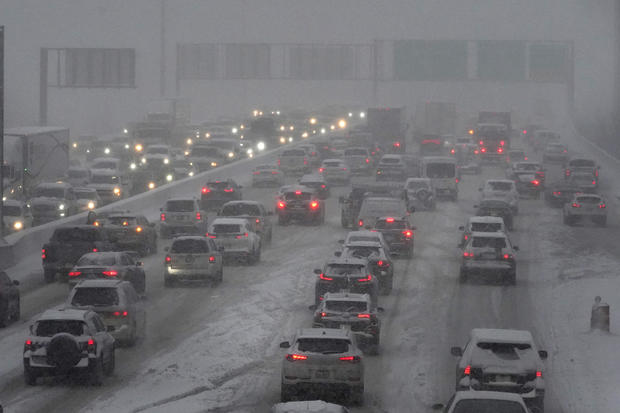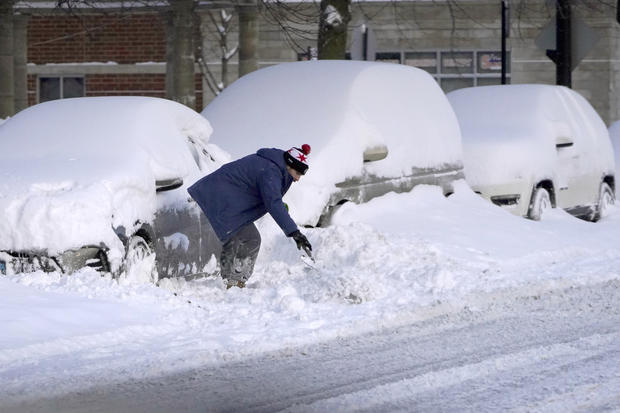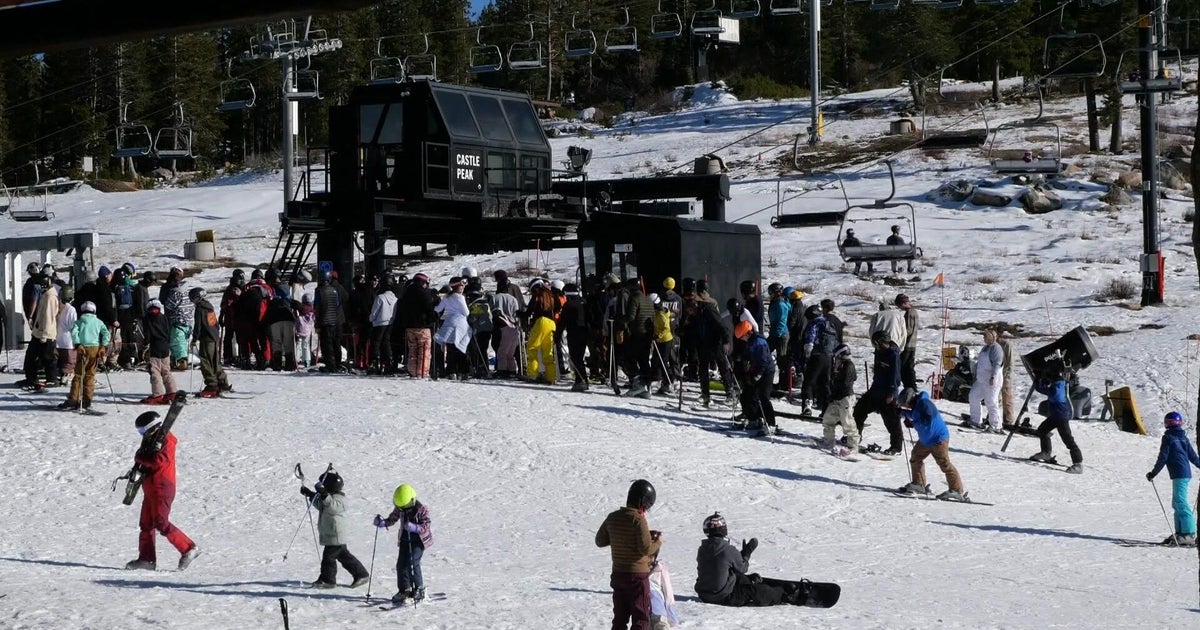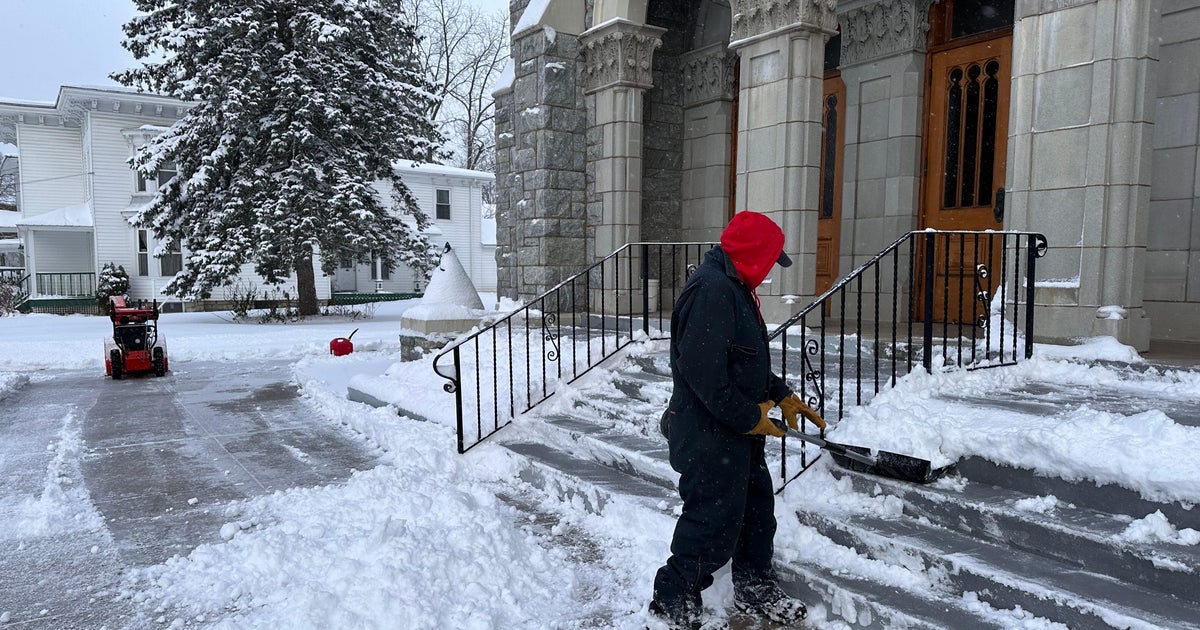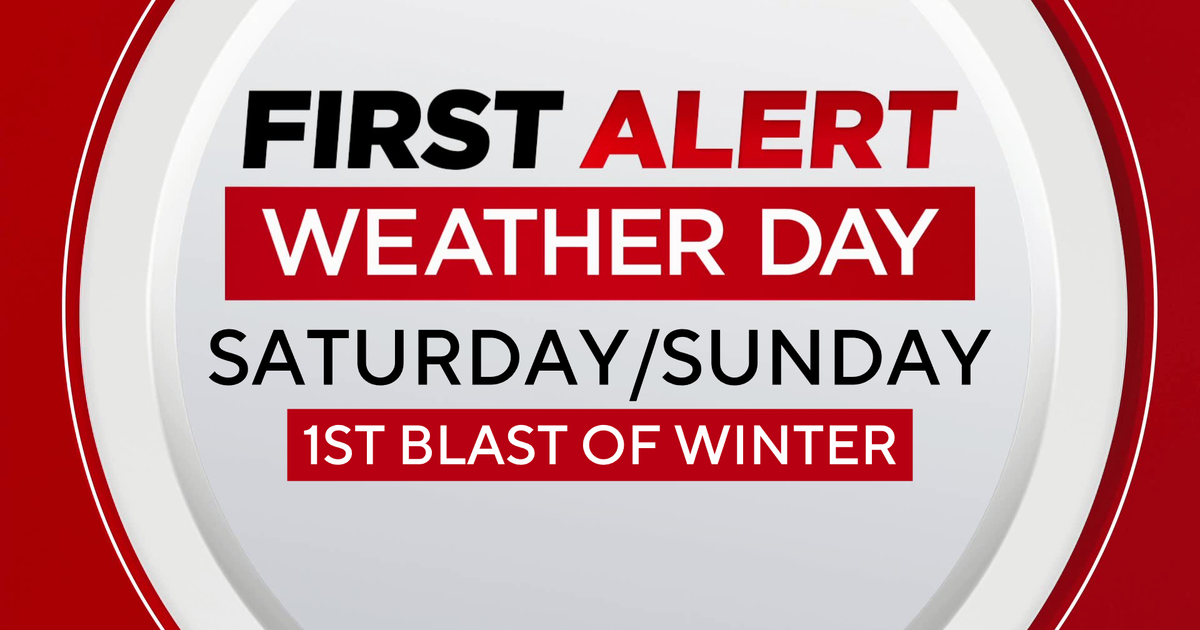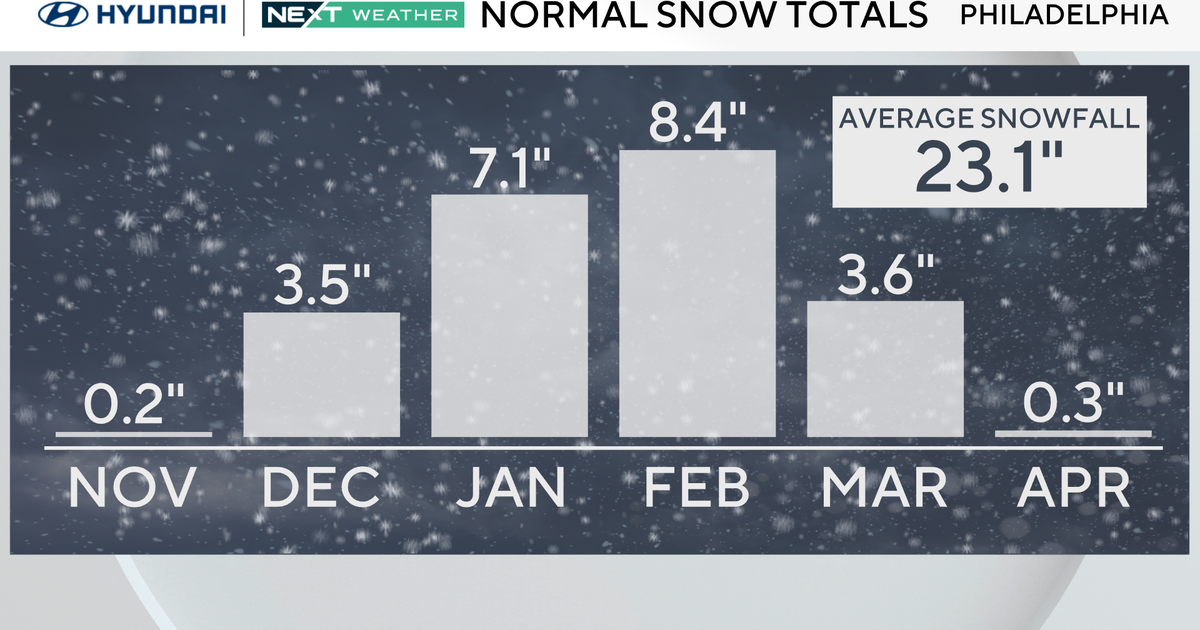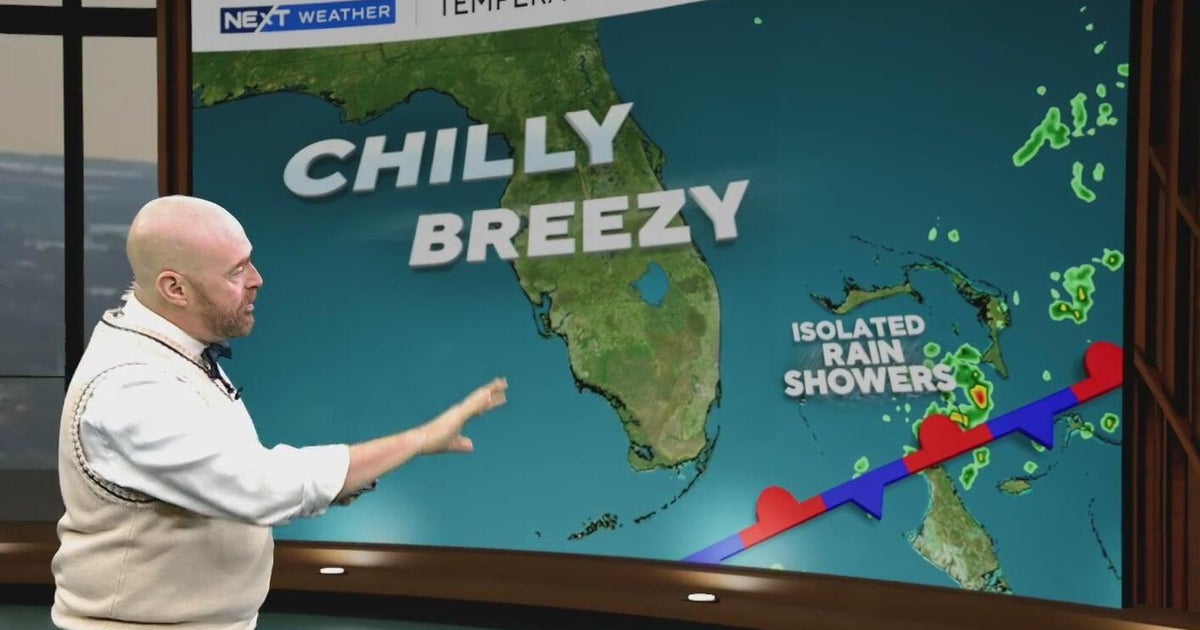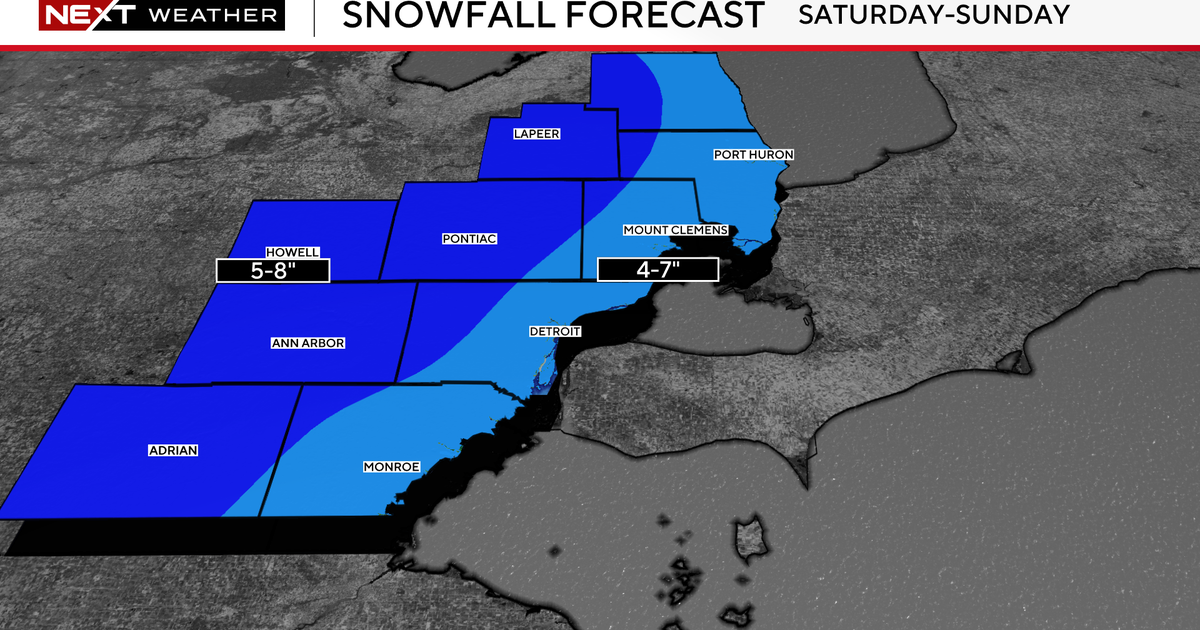Warming climate in Chicago expected to bring even more unpredictable winter weather
CHICAGO (CBS) - Winter is the fastest-warming season in the United States, and experts said it will become more unpredictable worldwide.
CBS 2's Tara Molina reports, that in Chicago, it means changing winter conditions will require changes in safety, preparation, infrastructure, and even health.
And for those tasked with getting us through the winter season safely? Plans for those changes started months ago.
"It is becoming increasingly much more difficult to forecast what exactly is going to happen," said CBS 2 chief meteorologist Albert Ramon. "It's literally throwing a wrench into the weather model machine."
Joe Wagner has been in the towing business for over 30 years, and winter weather is his bread and butter. Once the snow hits the ground, he says his workers don't stop moving.
'It's gonna be a scary winter'
"Our winters are our busiest times," said Wagner. "For people sliding off roads, getting flat tires, crashes. We unfortunately have to deal with [it] every day."
Wagner said he first heard of less-predictable, possibly wetter winter months ago.
"It's gonna be a scary winter," Wagner said.
He said his team started prepping for it immediately.
"We started about two months early because we heard it was going to be a really bad winter. We ended up buying extra cables, extra straps, spare tires, chains, gloves, and hats. Because if this is anything like what they're saying? We're in trouble."
Preparing and responding to that kind of trouble is the focus of Cook County's Emergency Operation Center. It exists to navigate any crisis.
"We are always going to have to prepare for the worst day," said Ted Berger of Cook County Emergency Management and Regional Security.
This includes winter weather.
"Our winter weather preparation begins essentially when summer starts to fade," Berger said.
Berger leads the emergency management team, already in winter prep mode.
"Our concerns start with monitoring the extreme events like the overwhelming snow events that may happen," he said.
It's not just snow removal
Berger says changing weather conditions weigh into planning to address those concerns.
Those plans include coordinating first responders and resources from more than 130 municipalities that serve more than five million people.
His agency is setting up contingencies for flooding, with more rapid "freeze-to-thaw" weather expected.
"It is not just simply about snow removal now," said Berger. "It is recognizing that our extreme temperatures and potentially warmer temperatures over time are leading us to see more dramatic freeze-and-thaw cycles than we've previously addressed in the past."
Experts say that winter is warming everywhere, with temperatures up in 97% of the country since 1970.
Out of all four seasons, winter is the fastest-warming one, according to Climate Central.
Over that time, the average temperature in Chicago was up more than three degrees.
Chicago has more warmer-than-normal winter days, too.
Scientists know that people, especially burning fossil fuels, are the main cause of climate change, leading to the heating of Earth.
All of this makes predicting weather harder, CBS 2's Ramon said.
"When it comes to a warming climate, we are not the same Chicago area that we were in the 90s or before. Our weather patterns are changing," Ramon said.
"Extreme weather is those events that we have that are becoming more frequent, that are impacting our livelihoods, our pocketbooks, and in many cases, our safety."
More extreme winter conditions
That means more extreme conditions in the future.
"Based on all of the research from people a lot smarter than me?" Ramon said. "Yeah, more and more extreme weather events are gonna be with us."
Ramon said the Climate Prediction Center projects higher temperatures and less precipitation this winter in Chicago.
But keep that snow shovel at the ready.
"So here's what may happen this winter," Ramon said. "With above average temperatures, there's a less likelihood that Lake Michigan freezes over. So that may mean we may have more lake-effect snow days.
"So, who's in play for that? Areas like southern Cook County, the south suburbs, Northwest Indiana, because in the wintertime we have that wind that's coming out of the north."
That extra snow may be caused by less ice on the lake than usual.
"So where these lake effect snow bands set up this winter, we may see several inches of snow that maybe we wouldn't typically see during a normal winter."
That is why Joe Wanger is doing the work now, preparing for the unpredictable that one day could be considered as normal as the snow, ice, and slush.
"You better start thinking about it because it is changing," Wagner said. "And you're going to find out quicker than you know because it's coming. And whether we like it or not, climate change is going to put a damper on everything. And it's horrible, but it's what we have to live with."
There is another twist – it is expected to be an El Niño Winter. This refers to when the sea surface temperatures in the Pacific warm up, impacting regional temperatures all around the globe. In addition to climate change, El Niño could warm up winter in Chicago.
"There's what goes on in the Arctic, the Atlantic, right here in the Midwest, all of those things influence our winter weather," said Trent Ford, Illinois State Climateologst. He studies the influence and impacts of climate change.
For stories about how winter is changing across the country, and to watch the documentary 'On the Dot' please visit Arctic melting foreshadows America's climate future.
